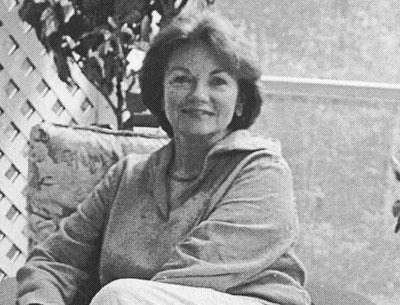Catherine O’Neill, Political Activist

Catherine O’Neill, who helped found the Women’s Refugee Commission in 1989 and in a long career had worked for the United Nations and the International Monetary Fund among other notable organizations, died on Dec. 26 at the University of California Medical Center in Los Angeles. She was 70 and had had cancer for 12 years.
Ms. O’Neill and her husband, Richard Reeves, lived in Sag Harbor on and off for about 30 years. Her political activism and concern about women and children in other parts of the world propelled the couple to live for a time in Pakistan, where she worked with refugees from the Soviet war in Afghanistan, and in Paris, where she worked for the International Herald Tribune.
Her advocacy for women and children who were refugees grew from having accompanied the civil rights leader Bayard Reston to Thailand in 1979, where she saw refugees from the war in Cambodia. She helped found the Women’s Refugee Commission after traveling to other camps in Southeast Asia as a member of the board of the International Rescue Committee.
In Sag Harbor, the couple owned a house at the corner of Main and Glover Streets, where they gathered friends to what was described as “almost a salon.” Ms. O’Neill was known to introduce a heated topic at the dinner table and ask each guest to express an opinion. “You never said no to Catherine,” Linda Bird Francke, a longtime friend and colleague, said, as she praised Ms. O’Neill’s formidable organizing skills and determination.
The couple had two children each when they married in 1979 and went on to have a daughter. Ms. O’Neill’s peripatetic lifestyle not only prompted them to live abroad, but to take a trip through 16 countries with their extended family, whose members ranged in age from 10 to 33. It resulted in the couple’s co-authoring “Family Travels: Around the World in 30 or So Days.”
Catherine Elizabeth Vesey was born to Patrick and Bridget Ruddy Vesey in New York City on July 17, 1942. She earned a degree in history at St. Joseph’s College in Brooklyn and taught for a year as a Catholic missionary in La Grange, Tex., which had a brothel industry that inspired the Broadway show “The Best Little Whorehouse in Texas.” She earned a master’s degree in social work from Howard University.
Her political life began in Los Angeles, to which she had moved in 1965 with her first husband, Brian O’Neill. She ran for the California Senate twice and for secretary of state in the 1970s, and was finance director of Gov. Jerry Brown’s presidential campaign in 1976. According to The Los Angeles Times, she lost her hope to become the first woman in the California Senate by one percentage point after a Roman Catholic pastoral letter was read in her district’s pulpits condemning her stand on abortion.
After their marriage, she and Mr. Reeves, an author, lived in Los Angeles until she was offered a job as RCA’s public affairs officer. She didn’t like it, he wrote, and quit to get another master’s degree, this time in international affairs, at Columbia University.
In 1992, Ms. O’Neill was back in Los Angeles politics, losing a Democratic primary bid to run for the California Senate to Tom Hayden, who went on to win the election. Kofi Annan, secretary general of the United Nations, appointed her director of the U.N.’s information center in Washington, D.C., in 1999, a post she held until 2005.
In addition to her husband, Ms. O’Neill is survived by their daughter, Fiona O’Neill Reeves, by two sons from her first marriage, Colin and Conor O’Neill, a stepdaughter and stepson, Cynthia Reeves Fyfe and Jeffrey Reeves, as well as one grandchild and three step-grandchildren. A sister, Mary Ann Garvey, also survives. The family plans a ceremony in the spring at Oakland Cemetery in Sag Harbor.
Memorial contributions would be appropriate, the family said, to the Women’s Commission for Refugee Women and Children, which now has a staff of 25 and focuses on gender-based violence, sexual and reproductive health, and migrant rights. Its office is at 122 East 42nd Street, New York 10017.
In an interview with The East Hampton Star in 1999, Ms. O’Neill said, “In my lifetime, I have been blessed at talking to and getting to know people all over the world. And I have never stopped being struck by the ability of women from all different parts of the world to bond, connect, understand their shared values, and click with their aspirations. It’s fantastic, and it’s a great sign of hope.”
